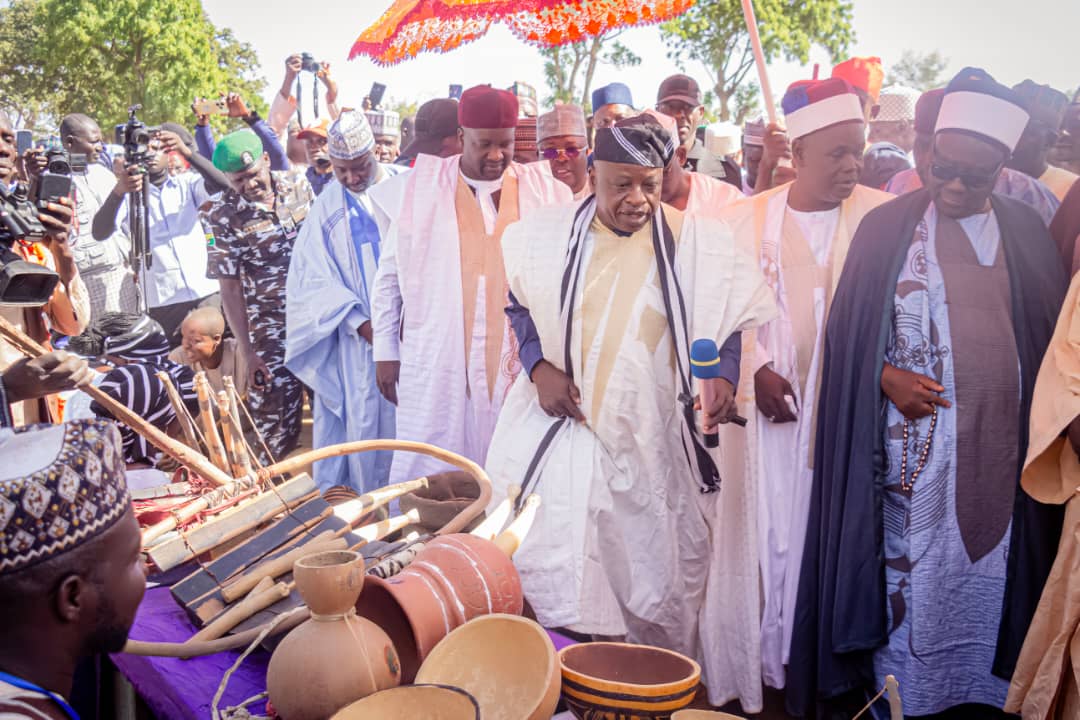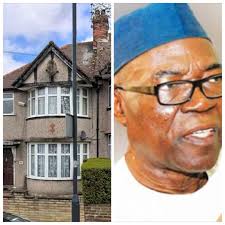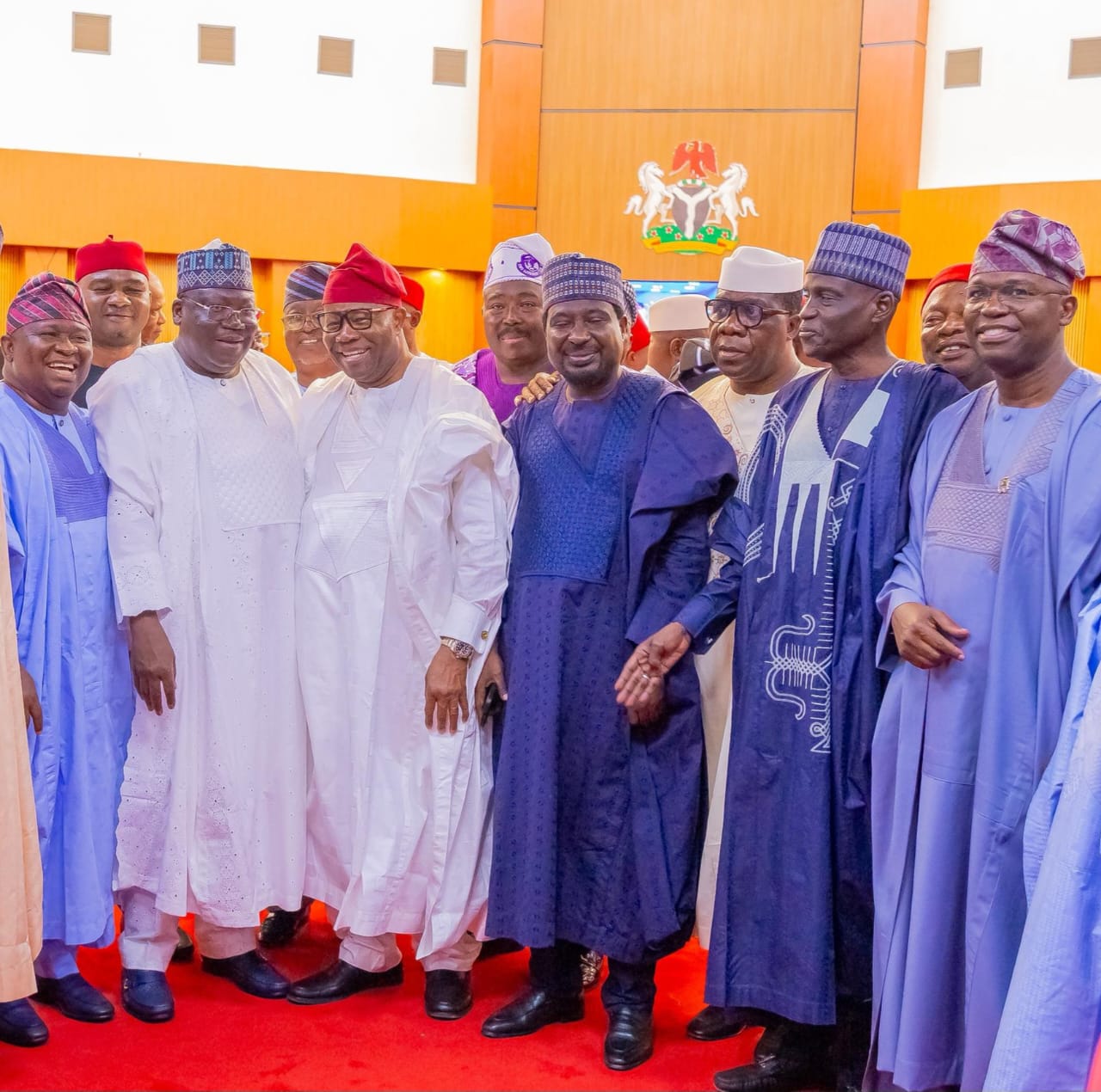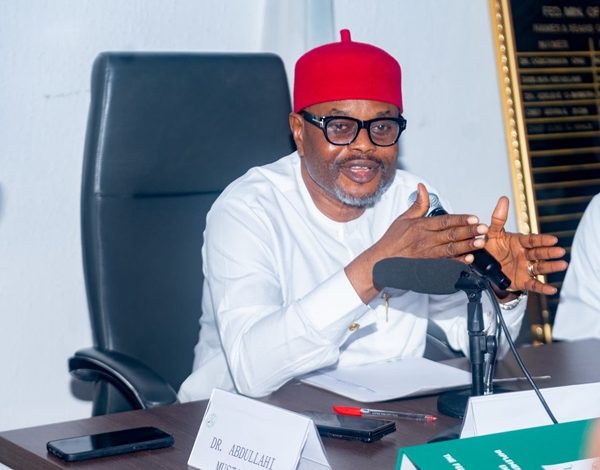Uncategorized
THE HISTORICITY OF MARAMA DAY AND THE SYMBOLISM OF CULTURE IN BURA LAND

.
By: Inuwa Bwala
Every year, since 2004, Bura people all over Nigeria converge on Marama: the symbolic headquaters of Buraland, on the 1st of January, to mark Bura Culture Day, also known as Marama Day.
Bura Culture Day evolved from a local cultural festival innitiated by some elites from Marama, who saw the need to foster community togetherness and promote their cultures and traditions. The initial perception was that Bura culture generally has been facing threats of extinction, and there was the need to rescue and restore its dignity, starting from where it was believed to have originated.
It was also conceived as a rhendezvous for rewarding excellence amongst outstanding sons and daughters and promoting partnership with other cultures.
To us, we need to discourage idle activities, like using the Christmas, Easter, or Sallah holidays as a period for alcoholic misadventures and attendant vices, we could convert the periods for more positive enggagements.
And so, what started as a small group initiative, which was sponsored through contributions, has today crystallized into a global attractiveness.
Over the years, since it was first staged, Marama Day has remained a watershed and the symbolism of Bura people’s dedication to promoting and preserving their rich cultural heritage.
It is one event that has tended to serve as a rhendezvous for all Bura people, irrespective of town, religion, or political inclination.
And those who have been following trends of events annually can attest to the fact that, Bura Culture Day or Marama Day remains a pace setter and the richest celebration of the diverse traditions, customs, and values of tribes across Borno Adamawa and Gombe states; where Bura people can be found.
Initiated against the need to revivee a fast disappearing Culture, and to inculcate the spirit of togetherness and, showcase, and reflect on the significance of cultural activities in the lives of people, Bura Culture, is indeed a mark of pride for Bura people, at home and in diaspora.
Over the years, State Governors, ministers, Senators, traditional rulers, captains of industries and the creme de la creme of the country’s inteligesia have been brought together, to watch, and celeberate and to foster a sense of togetherness.
Marama Day has always provided a platform for different people to express themselves, showcase talents, and share stories.
Besides promoting cross-cultural understanding, tolerance, and appreciation: by the participation of other cultural groups from outsude Bura land, Bura Day is also regarded as the climax of activities to mark Christmas and New Year. Through this festival, people tend to learn from each other’s experiences, traditions, and values, and in doing so, it reshaped our outlook and helps people to break down barriers and build bridges of friendship across cultures, tribes, religion and state.
Bura Culture Day has a profound impact on the mental and emotional well-being of people, which explains why all roads led to Marama during this period. It provides an opportunity for our children born outside Buraland to trace their roots, learn to speak the language properly, and interact with the locals.
For those of us who had the privilege of witnessing all the editions, it provides an outlet for stress, anxiety, and other negative emotions and helps us to develop a sense of purpose and fulfillment.
With the belief that culture is a stimulant for economic development and social cohesion, Bura Day creates jobs and stimulates local economies, besides helping to preserve our cultural heritage for future generations.
The 2025 celebrations, was appropriately tagged”Celeberating A Heritage of Excellence”, and those who were previledged to witness it can attest to the fact that, it was indeed a remembrance of the importance of cultural activities in the lives of people.
The cultural displays, dances, rythms, artifacts and personalities left no one in doubt that, Bura Culture Day is indeed the flagship of other cultural activities and has promoted the preservation of the unique cultural heritage of the Bura people.
Borno State Governor, Professor Babagana Umara Zulum and his deputy, Dr Umar Usman Kadafur, as well as the Emir of Biu, the emir of Fika, Shani, as well as the Amna Shelleng and the traditional head of Lunguda people from Adamawa state have over the years strengthened our bond if friendship, which further lead to the the lure of Marama Day. Their presence have facilitated closer cultural linkages, culminating into inter marriages..
In their individual remarks, they emphasized the use of cultural activities as a tool for building stronger, more cohesive communities.
It is not out of place to also state that Bura people have always paid special tribute to these individuals, who have added color to Bura Culture Day celeberations.
Bura people have often honored individuals during the event, and it is on record, that Bura have always honored, Governors of Borno State, especially Professor Babagana Umara Zulum, the Deputy Governor, Dr Umar Usman Kadafur, who is coincidentally a son of Marama, distinguished senator, Mohammed Ali Ndume, and the honorable member representing Askira-Uba/Hawul Federal constituency, Midala Usman Balami and other political and opinion leaders.
Very often, we have tried to insulate Marama Day from political activities, but very often too, some political side events also happen. This is perhaps due to the presence of jey political figures, who use the occasion to market themselves.
Given that having such personalities in the locality at the same time is a rare privilege, Marama people never miss the opportunity to put forward some of their problems.
We utilize such opportunities to inform our guests that the sustainability of Bura Culture Day is contigent upon solutions to some of our problems. We did not allow this opportunity to skip this year, as we outlined some of them.
As I pause, I must state that, Bura Culture Day shall continue to celeberate, our diversity promote our culture: the heritage of excellence; and the years ahead beacons on those who have been reluctant to join, so that together we can make a huge difference.
Uncategorized
London Property Dispute Exposes Alleged Corruption, Forgery by Nigerian Politician and Lawyer

By Hassan Taiye
A recent judgment by the UK’s First-tier Tribunal (Property Chamber) has shed light on a complex web of alleged corruption and forgery involving a Nigerian politician and a senior lawyer. The case revolves around a disputed property in North London, valued at 79 Randall Avenue.
The property was purchased in 1993 under the name “Tali Shani,” which is allegedly an alias for late General Jeremiah Useni, a powerful member of the Abacha regime. Chief Mike Ozekhome, SAN, claimed the property was gifted to him by “Mr. Tali Shani” in 2021 as payment for legal services. However, the tribunal dismissed this claim, describing it as “fabricated” and “fraudulent.”
The tribunal’s ruling highlights the alleged involvement of Ozekhome and his associates in fabricating documents, including a Nigerian passport, National Identification Number (NIN), and Tax Identification Number (TIN). The NIN was reportedly created remotely from Monaco using a non-compliant photograph and bypassing biometric requirements ¹.
The Human and Environmental Development Agenda (HEDA Resource Centre) has petitioned the Independent Corrupt Practices and Other Related Offences Commission (ICPC) to investigate Ozekhome and others over alleged fraud, forgery, and unlawful attempt to acquire the London property. The ICPC has launched an investigation, and the Attorney-General of the Federation (AGF) has also taken notice of the case ²
Chief Mike Ozekhome, SAN Senior lawyer accused of forgery and attempting to acquire the property through fraudulent means.
General Jeremiah Useni Late Nigerian General allegedly behind the purchase of the property under the alias “Tali Shani.”
Osilama Ozekhome*: Ozekhome’s son, implicated in the alleged forgery and fraud.
Uncategorized
photo

L-r Senate Committee Chairman on Appropriation, Solomon Adeola; Senate Deputy Whip, Onyekachi Nweboyin; Former Senate President, Ahmad Lawan; President of the Senate, Godswill Akpabio; Senator Sharafadeen Ali; Deputy Senate President, Jibrin Barau; Senate Leader, Opeyemi Bamidele; Senate Whip Tahir Monguno and Senate Committee Chairman on Financial Institutions, Tokunbo Abiru, after resumption of plenary yesterday. Photo: Senate President’s Office
Uncategorized
BREAKING: Tinubu’s Minister, Uche Nnaji, Resigns Amid Certificate Forgery Scandal

By: Fabian Apechihin
The Minister of Innovation, Science and Technology, Uche Nnaji, has resigned from President Bola Ahmed Tinubu’s cabinet amid a growing controversy surrounding his academic credentials.
Presidential spokesman Bayo Onanuga confirmed Nnaji’s resignation in a statement issued late Tuesday.
Nnaji’s exit follows mounting allegations that his academic certificates were forged. Investigations revealed that the University of Nigeria, Nsukka (UNN), disowned the Bachelor of Science degree he claimed to possess, stating that he never completed his studies at the institution and was therefore not issued any certificate.
According to UNN Vice-Chancellor Prof. Simon U. Ortuanya, Nnaji was admitted in 1981 but failed to meet the requirements for graduation.
In a related development, the National Youth Service Corps (NYSC) reportedly disowned the certificate of national service presented by Nnaji, describing it as fake.
His resignation marks the latest in a series of controversies to hit the Tinubu administration over questions of integrity and accountability among public officials.
-

 Uncategorized5 years ago
Uncategorized5 years agoFG, states urged to harness flooding for ranching, others with technology – Agbaje
-

 Headlines10 years ago
Headlines10 years agoBreaking: EFCC seals Borno House of Assembly, as Hon members take to their heels
-

 News11 years ago
News11 years agoNigeria Security Operatives Stage Manhunt For Homosexual Perpetrator
-

 News9 years ago
News9 years agoHow 21-year-old Girl fled community over accusation of lesbianism
-

 News10 years ago
News10 years agoYobe Gov Moves Against Deputy
-

 Opinion6 years ago
Opinion6 years ago7 signs she has friend zoned you
-
Technology4 years ago
Online job placement company headhunts women
-

 Headlines9 years ago
Headlines9 years agoBorno Dep Gov Abducts Another Church Leader





